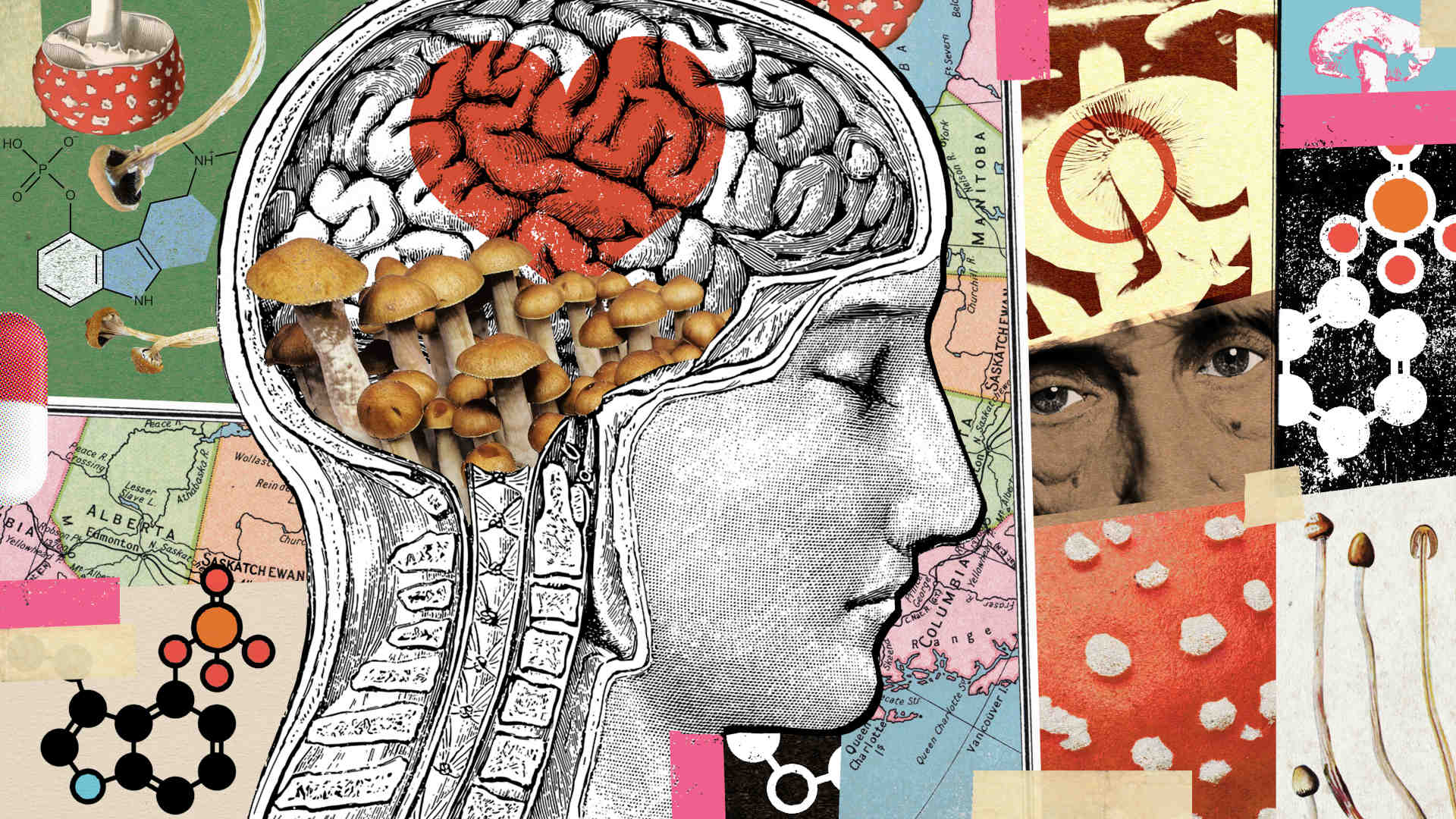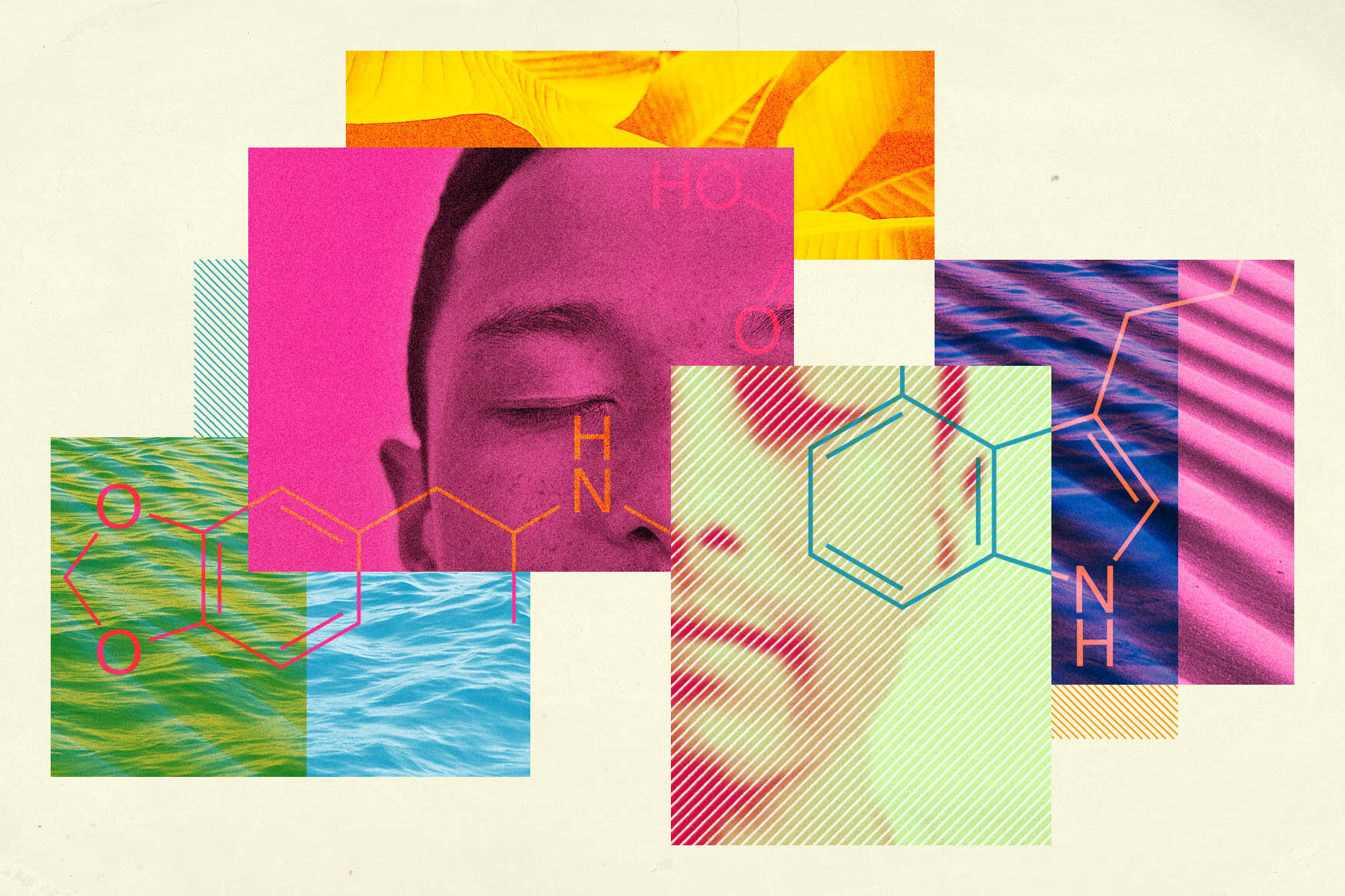By Gabriel García April 5, 2024
The European Union (EU) has taken a historic step by funding for the first time a project that uses psychedelics, such as the well-known “magic mushrooms”, to address the treatment of depression, especially in the field of palliative care and for people with various illnesses. This innovative EU-backed project marks a significant milestone in medical research and treatment of mental and physical health conditions.
Psychedelics, compounds that alter consciousness, include lysergic acid diethylamide (LSD), psilocybin (found in magic mushrooms), methylenedioxymethamphetamine (MDMA or ecstasy), dimethyltryptamine (DMT) and ayahuasca, among others. Each of these compounds affects the brain in a unique way, offering a broad spectrum of therapeutic possibilities.
Over the next four years, four clinical centres in Europe will study the impact of psilocybin in the treatment of psychological distress, including depression, as well as in people with incurable diseases. These centres will be located in Portugal, the Netherlands, the Czech Republic and Denmark, and each will focus on a specific pathology, from movement disorders such as Parkinson’s to diseases such as multiple sclerosis and amyotrophic lateral sclerosis.
 }
}
Funding of more than €6.5 million provided by the EU to partners in nine countries is supporting the PsyPal project, which aims to investigate the use of synthetic psilocybin in people with incurable diseases requiring palliative care. This study, coordinated by the University Medical Centre Groningen, will be based on a multi-centre randomised controlled trial, allowing data to be collected from a wide range of participants in different parts of Europe to increase the validity and applicability of the results.
The expected results are promising, especially after observing the positive impact of psychedelics in the treatment of depression and anxiety in terminal cancer patients. According to Albino Oliveira-Maia, director of the Neuropsychiatry Unit at the Champalimaud Foundation, “if this treatment proves effective, in the future we will be interested in exploring the individual contributions of medication and psychological support to help patients with depression. This knowledge will be essential for efficient resource allocation and more effective patient care.
A diverse team of experts, including psychiatrists, palliative care physicians, psychologists, psilocybin therapy experts and care researchers, as well as spiritual and religious representatives, have been brought together to conduct this ground-breaking study. This multidisciplinary collaboration highlights the importance and scope of research into the treatment of depression and other mental and physical health conditions using novel and promising approaches such as psychedelics.

If you are interested in learning more about this exciting world, we invite you to consult the Psychonaut’s Guides by Argonowta. These books will give you a broad and balanced view of psychedelics and their potential therapeutic effects. Remember, however, that these substances are not a panacea or a magic solution to all your problems. Their use requires professional guidance, an appropriate context and a responsible attitude. Psychedelics can be a powerful tool for personal change, but they can also be dangerous if used inappropriately or irresponsibly.
The Psychonaut’s Guides from Argonowta Publishing is a collection of books that explain in a rigorous and accessible way the scientific, historical, cultural and experiential aspects of psychedelic substances. These guides offer updated and contrasted information on the therapeutic and neuroscientific applications of psilocybin, LSD, DMT and MDMA, as well as practical advice on how to prepare, carry out and take advantage of psychedelic experiences. The Psychonaut’s Guides are a must-have reference for anyone interested in learning about the psychedelic renaissance that is transforming mental health and changing lives.






